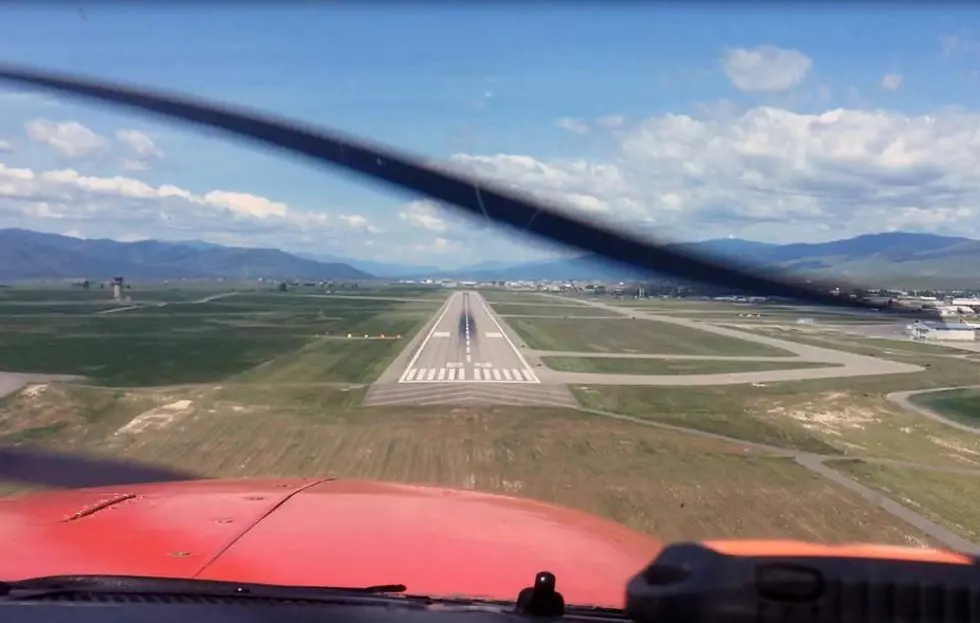
Volunteer pilots offer to fly patients in states like Idaho to abortion clinics
Kelcie Mosely-Morris
(Idaho Capital Sun) Now that Idaho’s trigger law banning nearly all abortion procedures at any stage of pregnancy is in effect, one of the closest abortion clinics is at least a four-hour drive from the Treasure Valley.
Millions of Americans who live in states that have banned abortion following the U.S. Supreme Court’s reversal of Roe v. Wade now live hours from an accessible clinic.
A Midwestern pilot, who goes by the pseudonym “Mike Bonanza” for security reasons, was watching national politics and anticipating the Supreme Court’s decision, when he came up with an idea: What if abortion patients could be flown to their destinations instead of having to drive?
At the end of April, three days before the draft opinion overturning Roe leaked on May 1, Mike founded Elevated Access. It is a nonprofit organization made up of volunteer pilots across the country who will fly people in need of abortion or gender-affirming care wherever they need to go, at no cost.
“Fiona Delta,” whose last name is also fictitious, acts as media relations coordinator for the organization from her home in Florida. She said during the past four months, since its founding, Elevated Access has had 1,300 people reach out by phone and text to ask how to help or to seek help.
“Of those, 840 are pilots who want to volunteer, which is kind of incredible,” Fiona told the Capital Sun.
Two of those pilots are in Idaho.
Planned Parenthood ready to partner with service
The option is ideal for someone who doesn’t have the luxury of flexible time off from their job, Fiona said, or someone who already has children and can’t afford or access child care for more than one day. Rather than trying to drive six hours to a clinic and six hours back, a flight might take an hour or two each way.
“That means they only have to take one day off of work, they can be home for dinner, they don’t have to worry about multiple days of daycare or a hotel room,” she said.
The nonprofit is incorporated in Illinois, and its executive director was a volunteer with Midwest Access Coalition, an organization that assists people who need abortions with associated travel costs, food vouchers and child care.
Now Elevated Access is partnering with similar organizations across the country to connect people with abortion or gender care.
Katie Rodihan, spokesperson for Planned Parenthood Alliance Advocates in Seattle, said the service is already on their resource list. When patients call looking for help to secure appointments out of state, Elevated Access is a resource Planned Parenthood’s patient navigators can recommend depending on the person’s situation.
The demand for abortion services from other states is incredibly high, Fiona said, with certain states acting as sanctuaries for people seeking abortions. One of those is Virginia, where she said people are coming by bus, train and plane.
“Sometimes they end up spending all their money on gas and sleep in their cars,” she said. “This is the world we’re living in, where you’ve got these organizations that are trying to help people get from Texas to Virginia, or Idaho to Kansas, or what have you. It’s not easy for a lot of folks who are in this situation.”
Ten pilots are needed in Idaho to be most effective
Only about 200 of the 840 pilots who applied have been accepted, Fiona said, because Elevated Access puts pilots through a rigorous vetting process. Pilots must be 21 or older and meet certain training requirements, and she said there is an effort to make sure the pilots will protect patient identities and security.
“It’s an unbelievably great experience from the perspective of anonymity and privacy, particularly when you’ve got unfavorable laws in that state,” she said.
The flights would depart from one of 3,000 small airports across the country that are composed of just a runway and a small building, Fiona said. Ninety percent of Americans live within a 30-minute drive of one of those airports, and there is no Transportation Security Administration or need to show a driver’s license or passport.
“It’s very private, very anonymous — your name could be Mickey Mouse and we don’t know or care,” she said.
The vast majority of pilots in America are men, and Fiona said their reasons for volunteering are often compelling. She received an email this month from a man who said he enlisted in the military to defend the United States, and he wanted to volunteer as a pilot because he saw that as also defending the country.
“Anyone who chooses to be a pilot with us is kind of an ‘all in’ person,” she said. “When you ask why they’re doing this, it’s never like, ‘Oh, I was bored.’ There’s some story they tell you where you just get goosebumps, whether it’s about them or their sister or mother.”
Elevated Access needs 10 or more volunteer pilots in a state like Idaho to be the most effective, Fiona said. Most of the pilots have their own planes, but it’s not required as long as the volunteer has quick access to a plane. Pilots without access to a plane of their own can also help as co-pilots in busy air spaces.
“We’re little, but we could be really big and important,” she said. “If you live in Idaho and you’re a pilot, this would be a great way to spend your time.”
Anyone who is interested in volunteering can go to the Elevated Access website for more details.
